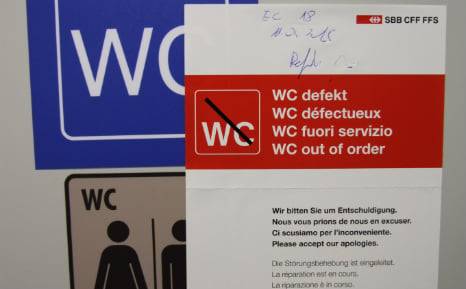The journey took place in October 2014 between Koblenz and Trier and has been described by the woman in question as two hours of torture.
She urgently needed the toilet but the only one on the train was out of order.
Unable to relieve herself, she had to suffer in painful silence for two hours until the train arrived at Trier train station, her lawyer has said.
When the train finally arrived, the woman rushed out to use the station toilet, but unfortunately she didn’t make it in time.
Because of this most uncomfortable and embarrassing of experiences, the woman sued rail operator DB for €400.
A court in Trier sided with her in July and ordered to DB to pay the woman €200.
The state-owned train company had failed in its duty twofold, the judges ruled. Firstly, it had not provided a functioning toilet and secondly it had not given passengers a viable alternative.
But despite the minuscule amount of money being demanded, DB are refusing to pay, and on Friday a court of appeal will hear their case.
“In principle there is a toilet on our trains, but we are of the opinion that passengers don’t have a legal right to have one,” the rail operator's lawyer said.
According to consumer group Pro Bahn, DB doesn’t want to cough up the money “because they see it as setting a precedent.”
It is true that passengers don’t have a right to a toilet on regional trains, but there is a “right to have what you are accustomed to”, Pro Bahn’s Karl-Peter Naumann argued.
This isn’t the first time that DB has left passengers exposed after not taking care of their loos, Naumann added.
A year or two ago, when the toilet on a train in the Rhine region was broken, the train company gave a man a bucket to do his business into, Naumann recalls.
As German society becomes ever older, it is more urgent than ever that proper, working toilets are provided on trains, since pensioners are more regular visitors to the rest room than most, Naumann says.


 Please whitelist us to continue reading.
Please whitelist us to continue reading.
Member comments